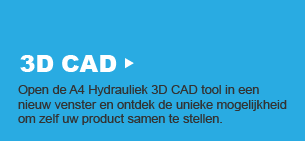I was recently invited to speak at Enzed's bi-annual conference in Sydney. Enzed is the brand Parker Hannifin's Hose Doctors operate under throughout Australia and New Zealand.
In addition to speaking at the conference, I had the opportunity to talk to many of the 200 delegates.
One of the many interesting things I learnt was, before a new recruit can begin working as a Parker Hose Doctor, he or she must attend a two-week training program. And apparently it's intensive - 80 contact hours plus homework.
This commitment to rigorous training is reassuring to those of us who from time to time find ourselves having to work in close proximity to an operating hydraulic system.
I know any time I find myself working near a large diameter, multi-spiral hose pressurized to 6,000 PSI I hope the guy who fabricated it knew what the heck he was doing.
And for good reason too. The consequences of being in the vicinity of a hose failure can be devastating.
The week following the conference I had a meeting with a lecturer at a local vocational college. He was in the process of developing a hydraulics training module for a group of apprentices and had chosen 'Industrial Hydraulic Control' as the class text.
During our conversation it was revealed that the basic hydraulics program he was preparing involved 36 hours of contact time.
As you know, I'm a big advocate of continuous learning and the pursuit of knowledge, but I found myself thinking this is less than half the amount of training a Parker Hose Doctor gets - in just one specialized area.
My point is, without any further education in hydraulics, when these apprentices become tradesman, there's nothing preventing them from working on any type of hydraulic equipment.
But should it be this way?
In most developed countries the Electrician is a licensed trade.
This means if you're a 'sparky' you must be appropriately trained and licensed for the type of electrical work you're doing.
And for those of us who aren't - it's illegal to fiddle.
Why is this so? Simple really. If you don't know what you're doing your chances of getting fried (or frying someone else) increase significantly.
There's similar parallels in hydraulics of course and those of us who've been around a while have seen the hydraulic equivalent of electrocution occur far too often.
Should hydraulics be regulated in a similar way to electrics?
Frankly, I think it's inevitable. And in my next hydraulics message in a few days time I'll explain why.
By Brendan Casey












